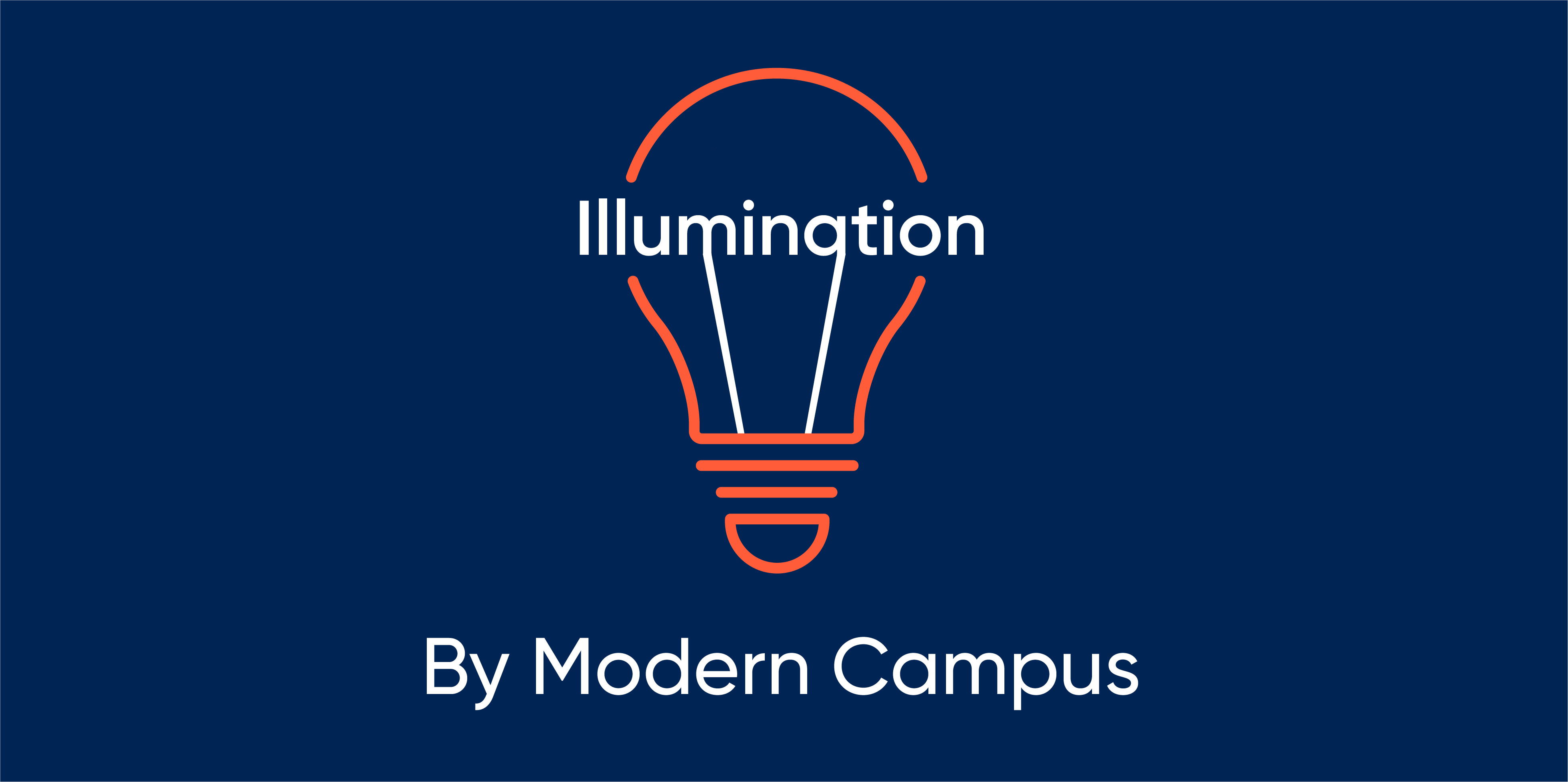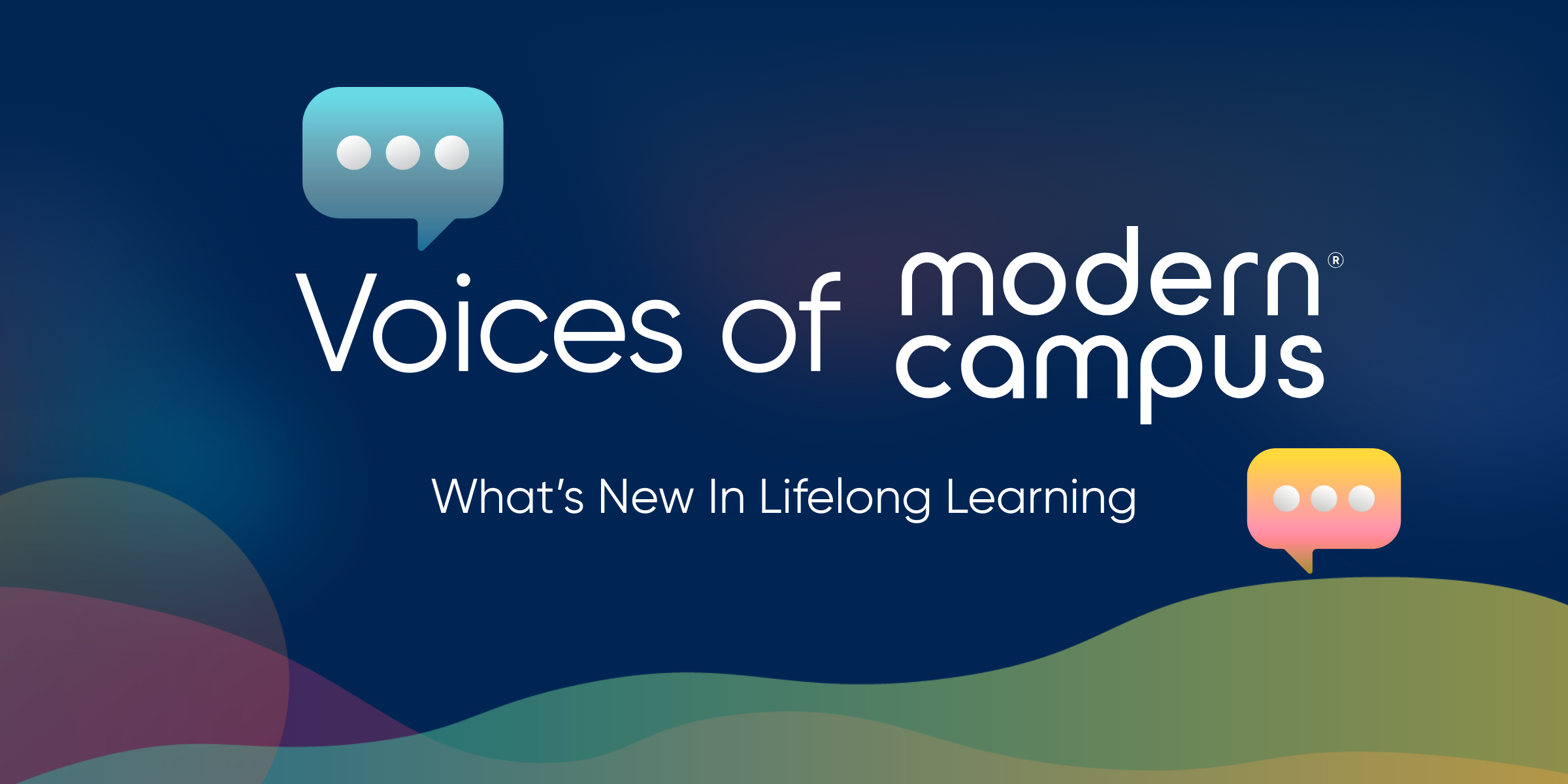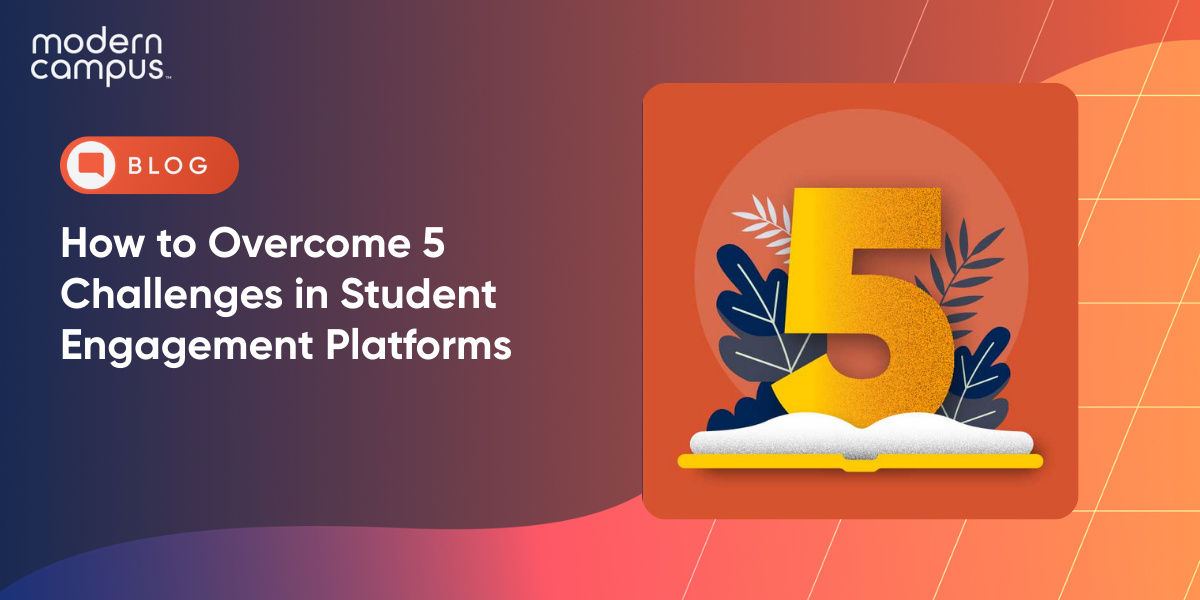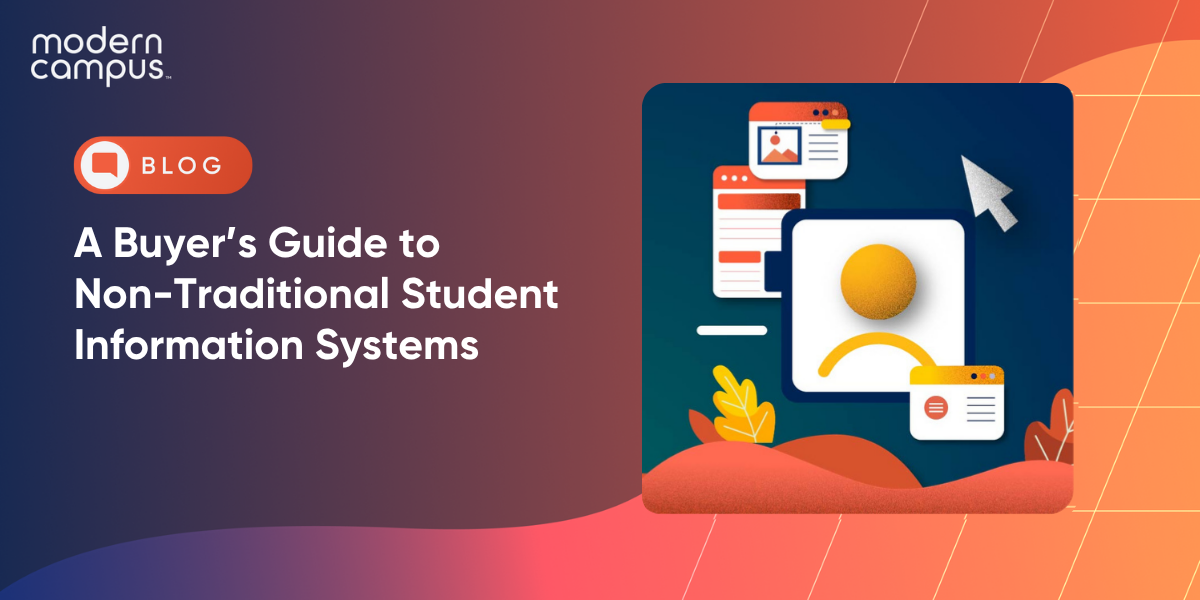Clarifying Credentialing to Meet Market Demands

Alternative credentialing has been a part of higher education for decades, and they’re picking up speed as modern learners demand more short-term, flexible options from their institutions.
It’s time to adapt traditional forms of education into something the modern learner can access at any point in their lifelong learning journey.
In the eighteenth episode of Illumination by Modern Campus, Mark Leuba, Vice President of Product Management at IMS Global Learning Consortium, highlighted how there isn’t a better time than right now for digital credentials.
“The disruption of the pandemic put pressure on colleges for proof points of their value and the pace of change in the workforce,” he said.
All points of direction show credentials as the ideal solution for higher education.
A common issue among higher ed and employers are transcripts. Oftentimes employers are unable to translate the skills a learner earned into something employable.
Shorter credentials are able to articulate a student’s learning outcomes in a more granular way.
“These skills can be aligned to in-demand job opportunities,” Leuba said.
With the increasing amount of credentials, it’s easy for those in higher ed and industry to get confused.
Standards need to be set in place in order to have clarity around what credentials mean for both students and employers.
“It’s a part of a movement of innovation towards the area of competency-based education,” Leuba said.
But traditionally, employers have looked to the degree as a signal of competency in a structure. To break this perception, it requires a deeper knowledge into what employers are looking for.
IMS Global Learning Consortium is diving into this research through their Wellspring project.
“We're very actively engaged in trying to understand the employer market,” Leuba said.
Their goal is to not only understand the employer market, but also demonstrate the value of digital credentials to employers themselves.
“These digital credentials can be a very valuable resource that can be decomposed and used in machine-based algorithms to identify the best candidate for a particular job,” Leuba said.
Competency-based education is headed towards a digital era and many institutions face barriers when it comes to open badges.
“We recognize open badges as a very important contributing component to this whole question of a digital recognition of skills,” Leuba said.
Open badges may lead to a question of quality depending on the organization’s standards. Leuba argues that with the right standards and assessments in place, open badges can be highly valuable.
“You can really pack that open badge with very high-quality information,” he said.
To put the right quality checks in place, requires the whole institution to be onboard.
“You're going to need strong support from the top in order to affect change,” Leuba said.
This means departments need to break from their traditional silos and come together to develop a framework. But sometimes they can face the barrier that Leuba calls silver bullet syndrome.
“It’s a belief that a successful credentials ecosystem is primarily a technology problem—which it’s not,” he said
Rather it’s evaluating teaching, learning and assessment best practices to improve programming and then see how technology is able to make it more efficient and accessible.
This is an ongoing conversation that isn’t going away any time soon. In fact, IMS Global Learning Consortium’s Digital Credentials Summit 2022 will focus specifically on this topic. Some of their session tracks are dedicated to corporate up-skilling and re-skilling, and bridging the gap between employee curriculum design and employable skills.
“The special part is networking with your peers and connecting with others who are doing what you’re doing—perhaps further ahead or behind you,” Leuba said, “So there’s opportunity to establish great connections.”
Learn more about and register for the IMS Digital Credentials Summit 2022 here.
Last updated: November 4, 2021


